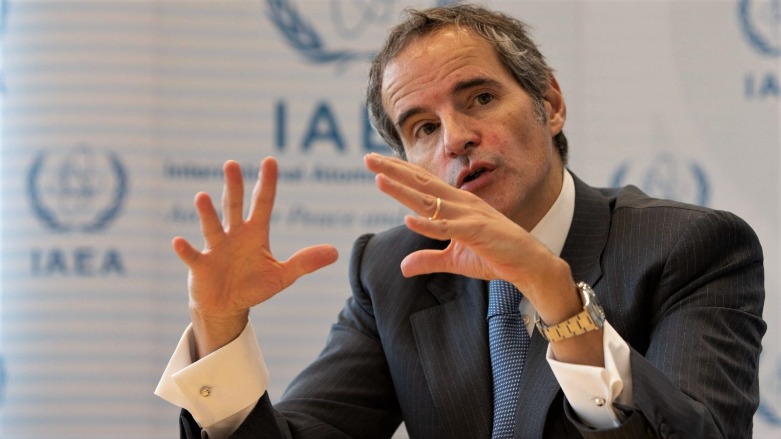US supports IAEA compromise on Iran nuclear inspections

WASHINGTON DC (Kurdistan 24) - Rafael Grossi, Director of the International Atomic Energy Agency (IAEA), announced in a press conference on Thursday that he had reached an understanding with Iran to address “a number of outstanding issues” related to its nuclear program.
Britain, France, and Germany (the E3) had planned to introduce a motion to the IAEA’s Board of Governors, which was meeting in Vienna, that would censure Iran for its lack of cooperation with the IAEA inspectors—as mandated in the 2015 nuclear deal, formally known as the Joint Comprehensive Plan of Action (JCPOA.)
However, the understanding that Grossi reached with Tehran prompted the E3, who are all parties to the JCPOA, as are Russia and China, to withdraw their proposed resolution.
Asked for the US position on those developments later on Thursday, State Department Spokesperson Ned Price expressed Washington’s unqualified backing.
Price began by noting that Grossi had “offered a proposal for Iran to address unanswered concerns regarding its nuclear program.”
“The E-3 decided, with the full support of the United States, that the best way to support the IAEA’s process was to refrain from putting forward the draft resolution at the meeting of the Board of Governors,” he continued, adding that the US was “pleased” with the outcome of the meeting.
The IAEA is now to hold technical talks with the Iranians at the beginning of April. Grossi said that he hoped to “come to some satisfactory outcome” by June, when the IAEA’s Board of Governors will convene again.
Iranian officials hailed the understanding with the IAEA. “Today’s development can maintain the path of diplomacy opened by Iran and create the grounds for the full implementation of commitments by all JCPOA parties,” the Foreign Ministry spokesman, Saeed Khatibzadeh said.
Khatibzadeh appeared to be referring not only to Iran’s obligations under the JCPOA, but also to its demand that the US lift the sanctions it imposed, after the Trump administration left the JCPOA in 2018.
Yet the nuclear inspectors have some serious questions. They want Tehran to explain the presence of trace amounts of man-made uranium at three sites, which it had not previously declared to be part of its nuclear program.
In addition, the JCPOA requires that Iran not produce uranium metal. But a recent IAEA report stated that Iran had produced a small amount—3.6 grams—at a facility in Isfahan.
Iran claims that the material is intended as fuel for a research reactor. However, a much larger amount—half a kilogram—could form the core of a nuclear bomb. If Iran can make a very small amount of the material, it could also make much more.
Whether Iran will provide satisfactory answers to the IAEA remains to be seen. Iran’s position is that the US should first lift its sanctions, and then it will resume its own compliance with the JCPOA.
The US position, as reiterated by Price on Thursday, is that Iran must re-establish its commitments to the JCPOA, after which the US will lift sanctions.
“Compliance for compliance” is how he put it.
On Feb. 23, Iran took a major step towards limiting its cooperation with the IAEA. It ended snap inspections and began to withhold video from the cameras that monitor its declared sites. It said that the US must lift sanctions within three months, and if that did not happen, it would destroy the recordings without providing them to the nuclear inspectors.
Thus, Thursday’s agreement has, at a minimum, provided Iran an additional month to carry out any clandestine work that it might be doing on its nuclear program.
And, as the outcome of the technical talks that the IAEA and Tehran will have in April are unknown, Iran may gain significantly more time than that.
Editing by John J. Catherine
